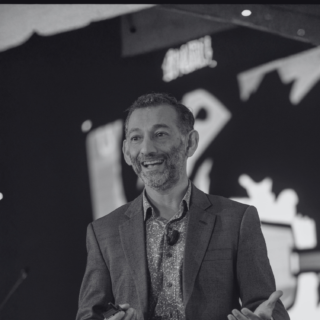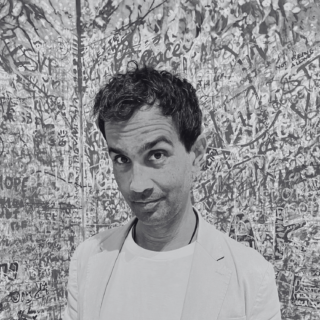The Golden Rule: a guide to a more sustainable future
05 Apr
The Golden Rule is the name we give to the maxim, ‘Treat Others As You Would Wish to be Treated’.
It's found is pretty much every secular and spiritual tradition; from the Middle Kingdom of Egypt and the Mahabharata of Ancient India to our homes, churches and mosques today.
The Golden Rule promotes two qualities that provide the necessary ‘glue’ in which society can form: empathy (the capacity to share pain with another) and kindness (Kind-ness’- the literal expression of what we have in-kind with one another).
Reboot the Future takes this axiom and extends it with the natural world:
-
Treat Others, and the planet, as you would wish to be treated
Reboot's mantra
In practice, this means according the same rights and respect to the natural world as we would expect for ourselves; lending ecosystems and natural resources the same rights and privileges under international law as are currently accorded to humanity.
The 17 Sustainable Development Goals (SDG's) provide a thorough technical ’toolkit’ of what is needed to live equitably within our planetary boundaries. What we lack is the willingness to do so. The Golden Rule provides a key tool for sustainable culture at the personal, local and global levels. Food systems are a good example:
One of the biggest drivers of ecological collapse is the global food industry. Given the multiple stakeholders, consumers, producers and supply chains, it is difficult for any one individual or institution to pick a path through this system change. Estimates suggest that we have some four seasons left before imminent systems failure on a global level. In her book Sitopia, Carolyn Steel suggests a ‘Golden Rule’ cultural approach: where each consumer, traders, supplier and producer looks for equitable exchange- literally, fair trade, between vendor and purchasers, between supermarket and dairy farmer.
This means in practice giving respect to the regenerative boundaries of nature and reattaching sense of grace and gratitude for the gift of food.
Reciprocity and regeneration become recurring keywords for the living by the Golden Rule. This principal of regenerative finance, education and agriculture prioritises the health and resilience of ecosystems, communities, and the planet over financial gain. The B for Good business group speaks of Radical Interdependence as being at the heart of B Corp status.
Reciprocity can be extended into cultural
and psychological realms. The concept of the Good Ancestor demands that we
actively consider notions of inheritance and atavistic responsibility toward
both past and future. Reciprocity with living beings demands a systemic approach
to ecosystems, rather than an Anthropocene one in which human desires and
appetites are placed at the centre.
-
The beauty of this Golden Rule approach is that, in the face of the overwhelming human impact on Earth's geology and ecosystems, it provides a direct, ad-hoc approach, applicable at any level, in any moment.
Anthony Bennett
Moreover, the new vistas of Artificial Intelligence and Augmented Reality present an opportunity for respect and empathy with the worlds of creativity and the imagination. Rather than the sour and embittered social networks which have corrupted our civic discourse, we might imagine a thriving #Metaverse of interoperability, and collaboration- of radical love.
Renowned neuroscientist Donald W. Pfaff proposed that the Golden Rule is hardwired into the human brain. Pfaff contends that the basic ethics governing our everyday lives can be traced directly to how specific brain signals induce us to consider our actions as if they were directed at ourselves - and subsequently lead us to treat others as we wish to be treated. Brain hormones catalyse behaviours such as self-sacrifice, parental love, friendship, and violent aggression. Pfaff offers a convincing hypothesis for how our synapses and neural links are predisposed to reciprocity
The current moment in time has been described as a metacrisis- the perfect storm of economic, ecological and cultural catastrophe. When our computer operating system crashes, we default to the original settings with which we started.
When we Reboot the Future, we default to our original OS, the ethical code which has remained constant across human societies and cultures, throughout the world and over the centuries.
The Golden Rule Perspective, by Anthony Bennett


